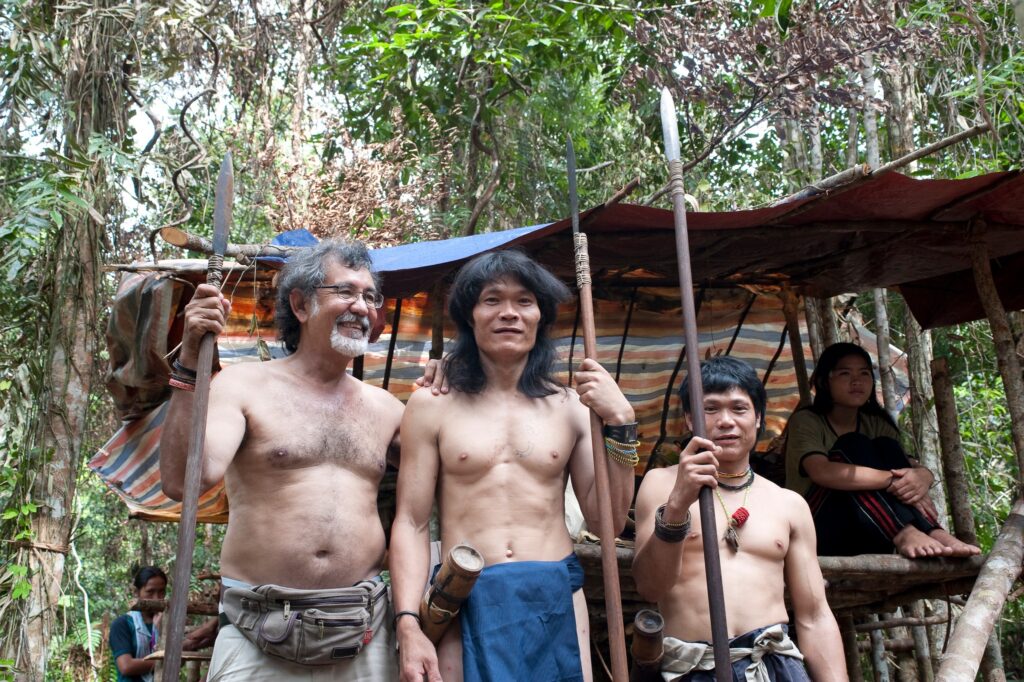
James Ritchie (left) with his friends from the interior
by George Das
As his casket rolled through the door to the cremation chamber, I gazed around. Only about 25 mourners were present and this included James Ritchie’s immediate family. My brother Phillip and I were there to see him depart forever.
This was the final farewell to my friend who was like a younger brother to me since our first meeting in 1974. Watching this small congregation place white carnations on top of his casket, James Ritchie’s voice played in my mind: “I’m a nobody.”
Not really Sandy (that’s how I called him). Hundreds came by to bade you goodbye over the two days of your ‘wake’ at St. Thomas Cathedral Hall, Kuching. This was evidence you were highly regarded by the common folks. Here is where I saw your popularity among the people. Not the people of status.
It was ordinary folks, whom you easily embraced and interacted with. He was just able to connect with everyone he met.
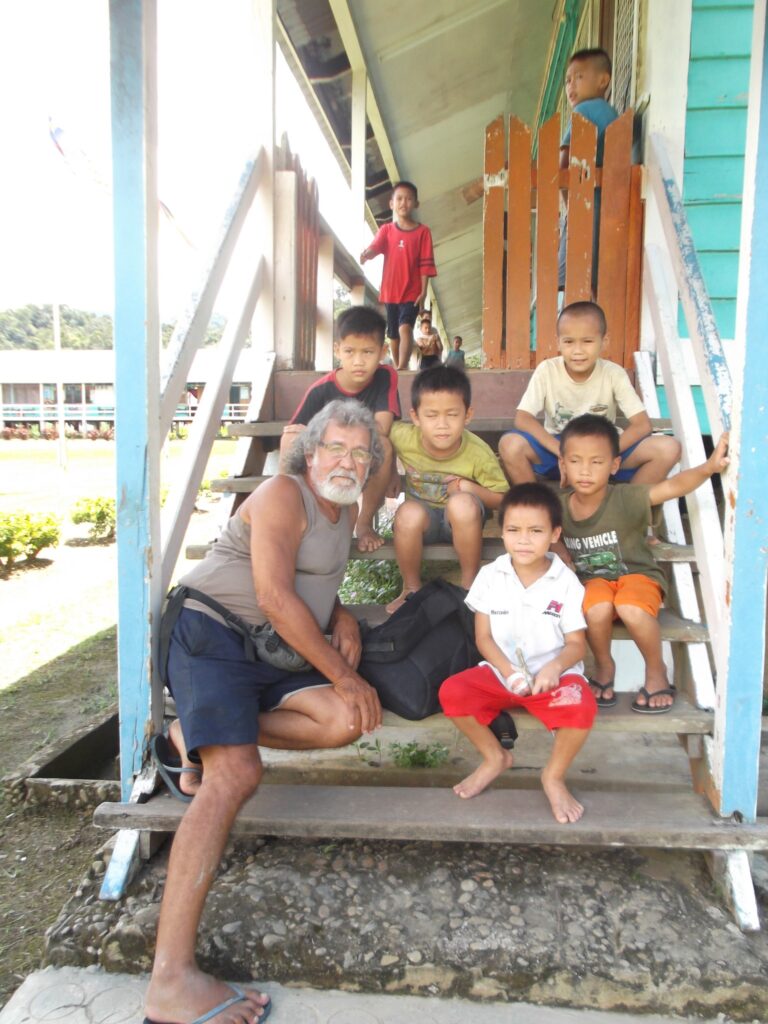
Just being happy with the kids and they just loved him
David Therviam was one such stranger present at his ‘wake’: “For years we used to pass each other on the street. He was such a simple guy.”
Ritchie was just himself. Everyone was a friend to him. He had an easy way of making you feel comfortable whether on the street, in a coffee shop or in a church. You would end up conversing with him.
Trevor Tindan, a retired pastor, recollected: “He did not see colour, positions or status. Rich or poor, old or young, he was very approachable.”
He had known Ritchie for over 40 years and revealed that Ritchie tutored him on how to collate his missionary work into books.
Ringo Meleng was busy ushering people to their seats at the ‘wake’. I got to talking to him:“James will always patronise my goreng pisang (fried bananas) stall near his home. He just wanted to help me. He was always pleasant and kind.”
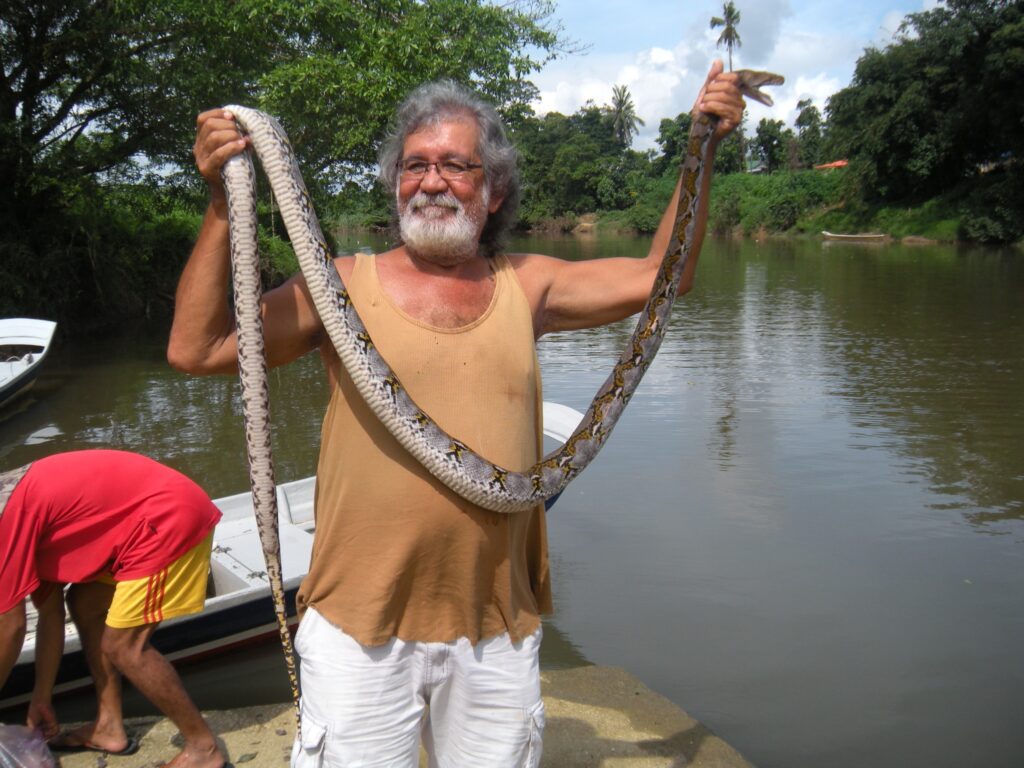
A slithery bounty from the river!
Many had the privilege of brushing shoulders with James. Just not on the streets of Kuching but thousands out there in remote villages, too.
Ritchie was like Bruno Manser, the Swiss environmentalist. A simple soul caught up with the plight of the poor and downtrodden.
He had said: “The plight of the Penan, who are my fellow countrymen are living in real poverty. They are ignored by the authorities. Their home is the forest, invaded by outsiders. They struggle to find game and sago on which they depended to survive.”
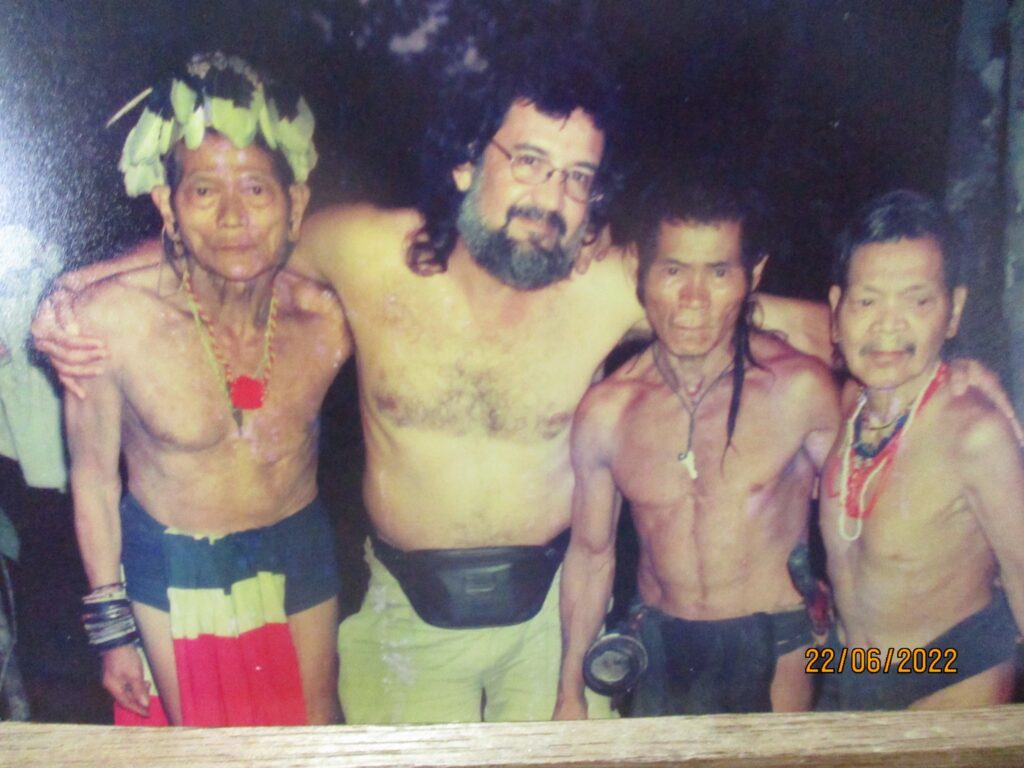
Just hanging out with friends from the interior
Ritchie was remarkable. He picked up the different “orang ulu” (native) dialects and was able to communicate with them. This gave him an advantage and they accepted him into their fold.
Soon he became a name sought after by BBC, National Geographic and many other foreign channels and news media.
When they wanted to shoot documentaries in Sarawak, Ritchie became their “favourite” source. Ritchie could narrate the rich cultures of the different native communities.
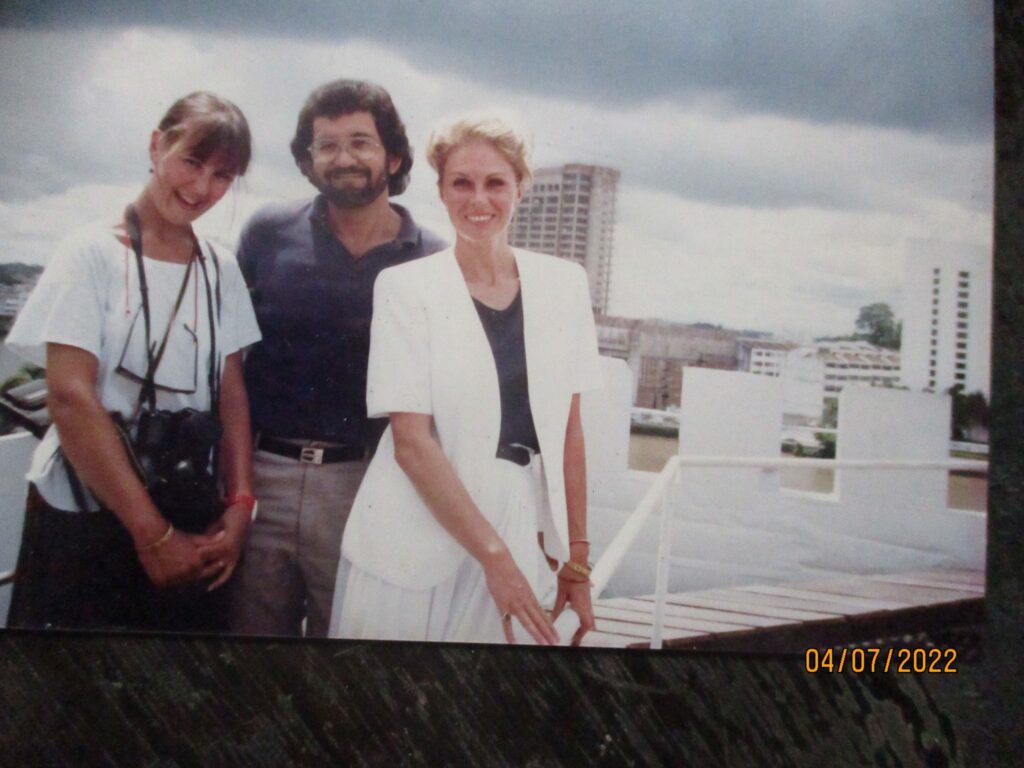
With famed British actress and tv host, Dame Joanna Lumley (right), in Kuching
His compassion for those living in poor conditions was deeply rooted in his commitment to these communities. Was an inspiration to them with his unwavering effort to uplift them.
“Ritchie’s deep-rooted love for Sarawak, saw him spend decades documenting the histories, legends and realities of the many communities,” recalled Peter John Jaban, a human rights campaigner for Sarawak.
He was so right. Ritchie was also generous and kind-hearted. He donated his land to a church in Padawan. Another donation was to a local association in Kampung Seratau, Kuching.
While he wrote volumes and as many as 50 books, James Ritchie himself is an “untold story.” A man who defied the comfort of a developed Kuching to spend weeks, sometimes months in remote villages. Living and experiencing their way of life in uncharted forests, crocodile-infested rivers, cobras and pythons.
Word of his passing may have yet to reach these villages where there are no modern communication facilities except through word of mouth.
‘In the tapestry of his life, vibrant colours of thread were richly woven. He left behind a multi-faceted legacy that was as remarkable as the life he led.
A life that was a testament of his passion, dedication, resilience, commitment and undying zeal.
Ritchie was a large pioneering figure whose formidable work ethic, toiling to bring some hope and dignity to the “forgotten people.”
In his thirst and knowledge of exploring new horizons, Ritchie unlocked the beauty of Sarawak to the world.
Ritchie was one lone voice in the wilderness of Sarawak. Always seeking truth and justice but never fame. James Ritchie was an extraordinary being who was a friend, never a foe to anyone.
‘HE WAS ADOPTED BY SARAWAK AND THE RAINFOREST OF BORNEO ADOPTED HIM’
Single-handedly he was responsible for the promotion of Sarawak’s rich cultural diversity and natural beauty through his videos and books.
The greatest honour that should be bestowed on this “Son of Sarawak” is to feature or celebrate him in the Borneo Cultures Museum. This way generations to come will know who James Alexander Ritchie was.
In the cacophony of cicadas humming, sounds of millions of insects providing the chorus, and the giggle of monkeys, James Ritchie has reached his destination – his beloved rainforest home.
Here is James Ritchie’s final song:
‘When tomorrow starts without me
Please try to understand
An orangutan angel came and took me by the hand
To the land beyond the rainbow bridge
To rest forever among my rainforest friends.’
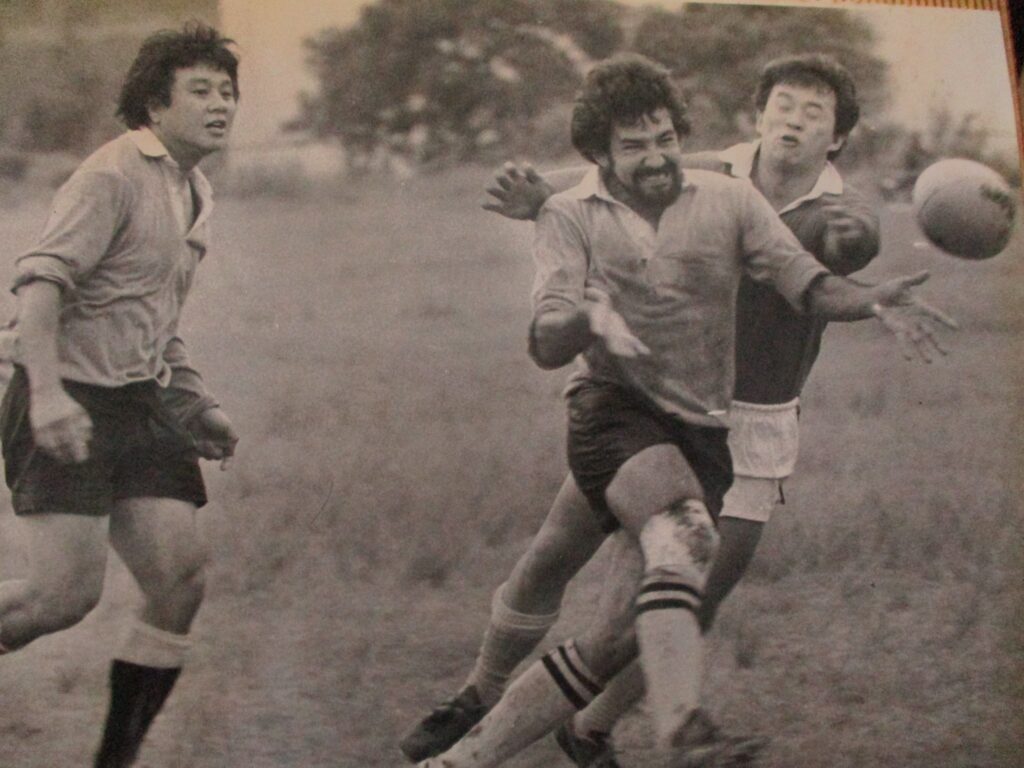
James Ritchie, slugging it out in rugby, a bruising game that he loved besides golf, a leisurely and sometimes meditative game of skill, patience and strategy
Sandy, thank you for being a part of my earthly journey.
SELAMAT JALAI! (Farewell in Iban) James Alexander Ritchie passed away on May 3, 2025 in Kuching. He was a sportsman, journalist, singer, author, environmentalist, animal rescuer and friend to all.